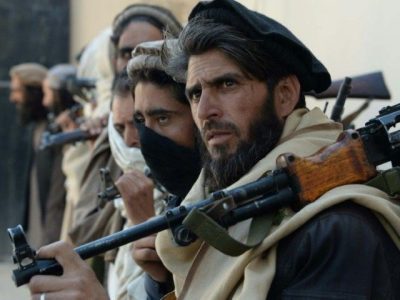By
Nasurullah Brohi
The constant efforts for enduring peace in Afghanistan, essential for the long term, has always been a collective effort of the Afghan government and international community.
A political process has attempted to overcome the chaos and conflict in Afghanistan by engaging the Afghan Taliban and the government in a series of negotiations. Previously the regional powers, as well as the United States, backed the peace talks with the Afghan Taliban as the 15 years of lasting war could not end the crisis. However, with the sudden revelation of Mullah Omar’s death, the over-delayed peace process between the two parties once again is fuelling tension in the country and somehow also encouraging other militant groups to mark their place. Pakistan for this reason mediated a few rounds of these peace talks, but after Mullah Omar’s death the talks were halted.
Through a mediatory role Pakistan twice endeavoured to engage the Afghan government and Taliban in a process of peace talks. Further supported by China and the US, both parties were urged to reach a consensus for a ceasefire and eventually engage in the confidence building measures (CBMs). However, the recent news of the Afghan Taliban supreme leader’s death has once again put the goal of bringing peace in Afghanistan on hold. Previously under the leadership of Mullah Mansoor, the peace talks between the two were also obscure yet there was a ray of hope that they could move forward. The demands of Mullah Mansoor for a complete withdrawal of foreign troops from Afghanistan is considered an obstruction point since the US and its allies have not agreed a complete withdrawal of the ISAF forces, therefore the drag-on policy never allowed a successful peace process for Afghanistan.
Many pretend that the death of Mullah Mansoor may lead to temporary gains such as a cleft amongst different groups of the Taliban, free to reach any accord to develop a consensus about the policies of new leadership. However, the selection of Mullah Haibatullah Akhundzada and his declaration of following his predecessor’s policies may seem difficult for raising an option where the two sides find a face saving option. Mullah Haibatullah Akhundzada was the former chief justice and head of the Ulema Council of Taliban therefore, his word and fatwa is largely acknowledged yet many still believe that his attitude, unlike Mullah Akhter Mansoor, is amenable to the possibility of joining the peace process to bring an end to the Afghan civil war.
The regional countries’ role always holds a significant position while mediating the peace talks of Afghanistan. Since Pakistan had already played the mediator’s role therefore, in the recent meeting in Islamabad of Afghan Ambassador Dr. Hazrat Omar Zakhilwal with Prime Minister Nawaz Sharif’s aide Sartaj Aziz, the main focus remained the prospects of the Afghan peace process following the death of Taliban leader Mullah Akhtar Mansour and the assumption of leadership by Mullah Haibatullah Akhundzada. Nevertheless, Pakistan considers the killing of Mullah Mansoor a major reason that thwarted peace efforts, particularly at a time when all parties along with China and the US were part of the process, further adding to the complexities of the Afghan conflict, only undermining the peace process.
The implications are already manifold and the killing of Mullah Akhter Mansoor badly affects the efforts of seeking a possible political solution essential to ending the enduring turmoil in the war-torn country. All the regional countries and the US advocate a politically negotiated settlement as the most viable option that could compel the two sides to move forward on the issue of Afghan peace and stability.



Interesting article, examining the internal political machinations of Afghanistan and the long road to a peaceful settlement. One area that the article could have examined is the long history of foreign intervention in Afghanistan. The imperialist states have a long track-record of militarily intervening in Afghanistan to impose a stable client regime that will be amenable to their interests. The Soviet Union, after eight years, withdrew its troops. Here we are in 2016, and the Americans have been in Afghanistan for fifteen years, with no durable solution in sight. Perhaps it is time to see the American presence in Afghanistan as the source of the instability, and not the solution. The United States financed, trained and supported Islamist fundamentalist groups since the 1980s, and out of these fanatical ultra-conservative groupings, the Taliban arose. Of course, Pakistan and Saudi Arabia played their own game, seeking to impose an Afghan grouping suitable to their interests. However, the current deplorable situation is the product of the intrigues and policies of US-Saudi imperialism.